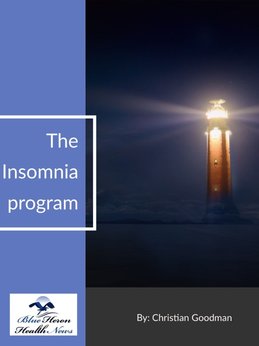
The Insomnia Program™ By Christian Goodman This program has been created by Christian Goodman, a natural health expert and sufferer of insomnia. He has used an audio program to let your fall sleep with the help of a bit of a hypnotic effect on your body.
How does insomnia impact cognitive function?
Insomnia has a significant impact on cognitive function, affecting various aspects of mental performance, including memory, attention, decision-making, and overall cognitive processing. Here’s how insomnia impacts cognitive function:
1. Impaired Memory
- Short-Term Memory: Insomnia affects the brain’s ability to consolidate short-term memories into long-term ones. Sleep plays a critical role in memory consolidation, especially during the REM and deep sleep stages. When these stages are disrupted by insomnia, it can lead to difficulties in recalling information and experiences (Labiotech.eu) (Med Xpress).
- Working Memory: This type of memory, which is responsible for temporarily holding and manipulating information, is also affected by insomnia. As a result, tasks that require multitasking, problem-solving, or following complex instructions can become more challenging (FIU News).
2. Decreased Attention and Focus
- Reduced Attention Span: Insomnia reduces the ability to maintain focus and attention over extended periods. This decreased attention span can make it difficult to complete tasks that require sustained concentration, such as reading, studying, or working on detailed projects (Med Xpress) (FIU News).
- Increased Distractions: Individuals with insomnia are more easily distracted and have difficulty filtering out irrelevant information. This can lead to mistakes and errors in tasks that require careful attention to detail (Labiotech.eu).
3. Slowed Cognitive Processing
- Cognitive Slowing: Insomnia leads to a general slowing of cognitive processing, meaning that individuals take longer to think, react, and make decisions. This cognitive slowing can affect everything from daily tasks to complex problem-solving and decision-making (FIU News).
- Reaction Time: Insomnia significantly affects reaction time, making it slower. This can be particularly dangerous in situations that require quick responses, such as driving or operating machinery (Labiotech.eu).
4. Poor Decision-Making and Problem-Solving
- Risky Decision-Making: Insomnia impairs the ability to evaluate risks and make sound decisions. Individuals with chronic insomnia are more likely to make impulsive decisions or overlook important details when making choices (Med Xpress) (FIU News).
- Problem-Solving Difficulties: Insomnia affects the ability to think creatively and solve problems effectively. This is partly due to the impaired cognitive flexibility and working memory that are necessary for considering different perspectives and solutions (Labiotech.eu).
5. Emotional Dysregulation and Cognitive Performance
- Impact of Emotions on Cognition: Insomnia often leads to emotional dysregulation, where individuals have difficulty managing their emotions. This emotional instability can further impair cognitive function, particularly in situations that require emotional control and rational thinking (Med Xpress).
- Increased Stress and Anxiety: Chronic insomnia can increase levels of stress and anxiety, which in turn exacerbates cognitive impairments. Stress and anxiety can interfere with concentration, memory, and decision-making, creating a cycle of cognitive decline (FIU News).
6. Long-Term Cognitive Decline
- Neurodegenerative Diseases: Chronic insomnia is associated with an increased risk of developing neurodegenerative diseases such as Alzheimer’s disease and other forms of dementia. Poor sleep quality and duration over long periods can lead to cognitive decline and the deterioration of brain function (Labiotech.eu) (Med Xpress).
- Brain Structure Changes: Some studies suggest that chronic insomnia can lead to structural changes in the brain, particularly in areas associated with cognitive processing and memory, such as the prefrontal cortex and hippocampus (FIU News).
Conclusion
Insomnia has a profound impact on cognitive function, affecting memory, attention, decision-making, and overall mental processing. The cognitive impairments associated with insomnia can affect daily functioning and increase the risk of long-term cognitive decline. Addressing insomnia through proper treatment and lifestyle changes is crucial for maintaining cognitive health and overall well-being.

The Insomnia Program™ By Christian Goodman This program has been created by Christian Goodman, a natural health expert and sufferer of insomnia. He has used an audio program to let your fall sleep with the help of a bit of a hypnotic effect on your body.